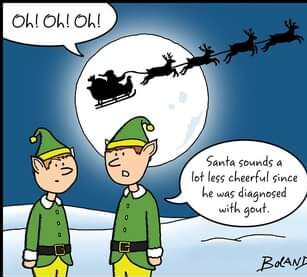The unfortunate reality of being a doctor is that sometimes we do all we can: we order the right tests, speak to our consultants, perform thorough documentation: but through a series of unfortunate events, it means nothing. The following is an actual medical malpractice case involving a kidney stone and a very unfortunate Emergency Medicine physician.
The patient presented to the ER on a Saturday morning complaining of pain in her abdomen and right flank. She had a history of kidney stones and reported that the pain felt similar. She complained of mild nausea but no fever or chills. Her vital signs and temperature were normal when they were first taken. The Dr. examined her almost immediately upon arrival and documented a soft, non-tender abdomen. CT scan revealed a 5mm stone in the ureter and urinalysis was unremarkable.
The Dr. spoke with the on-call urologist who confirmed that he could see the patient on Monday (two days later). The Dr. spoke to the patient and her husband and reportedly told them to return for uncontrollable pain, nausea, vomiting, fever, or chills. The patient was given written discharge instructions, which she signed, and was told by the nurse to return for fever, worsening pain, or vomiting. The patient left and allegedly looked a little warm and red but this was not documented in the chart and no temperature was repeated prior to discharge.
About an hour later, the husband reported that the patient’s temperature was 101.6. She remained at home and continued to have a fever all weekend, with chills, nausea, and vomiting. She would intermittently feel better so chose not to return to the Emergency Department. On Monday, after calling to make an appointment with the urologist, the husband returned home to find the patient unresponsive and convulsing on the floor. She was taken by ambulance back to the hospital and eventually died later that day from sepsis.
The jury returned a $3 million verdict against the hospital and the ER doctor.
How did this play out and what role did expert witnesses have in this case?
The Dr. himself, along with expert witnesses, testified that the combination of fever + kidney stone = urologic emergency. I don’t think any of us would argue that. Expert witnesses took it a step further by testifying that the Dr. failed to provide the standard of care by not ruling out an infection. The Dr. himself admitted a second temperature should have been taken, he did not ask for one, and he would have made decisions differently if a fever was present. The conversation with the urologist took place a few hours after the initial and only temperature was recorded – so when he was told the patient was ‘afebrile’, the patient may not have actually been.
Although the expert witnesses could not opine to a reasonable degree of certainty that the patient had a fever at the time of discharge, the husband reported that one hour after leaving she had a temperature over 100.4. One of the expert witnesses testified that the patient more likely than not did have a fever when she left. Based on this, the jury could find the Dr. negligent in his discharge of the patient.
What about the discharge paperwork?
The court ruled that even though the instructions told the patient to return in case of fever, chills, nausea, or vomiting (all of which the patient developed), they were ambiguous as they also stated to ‘call the emergency room’. The patient and her husband also questioned being told verbally to return for such things. The Dr.’s defense was that the patient’s failure to return when her condition deteriorated led to her decline; however, the jury concluded that they were not properly informed of the risk of a fever in combination with a kidney stone. The verdict was upheld.
Would you have done anything differently in this case?




